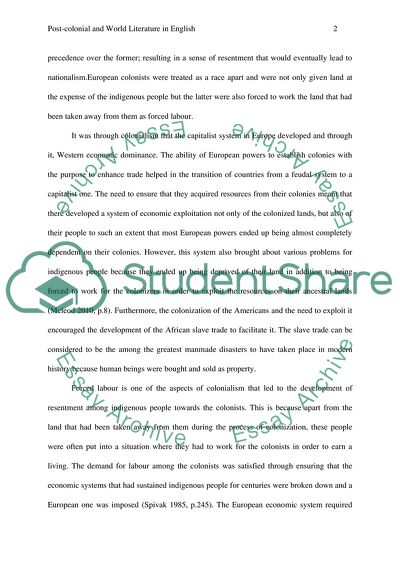Cite this document
(“Post Colonial And World Literature In English Essay”, n.d.)
Post Colonial And World Literature In English Essay. Retrieved from https://studentshare.org/english/1701392-post-colonial-and-world-literature-in-english
Post Colonial And World Literature In English Essay. Retrieved from https://studentshare.org/english/1701392-post-colonial-and-world-literature-in-english
(Post Colonial And World Literature In English Essay)
Post Colonial And World Literature In English Essay. https://studentshare.org/english/1701392-post-colonial-and-world-literature-in-english.
Post Colonial And World Literature In English Essay. https://studentshare.org/english/1701392-post-colonial-and-world-literature-in-english.
“Post Colonial And World Literature In English Essay”, n.d. https://studentshare.org/english/1701392-post-colonial-and-world-literature-in-english.


